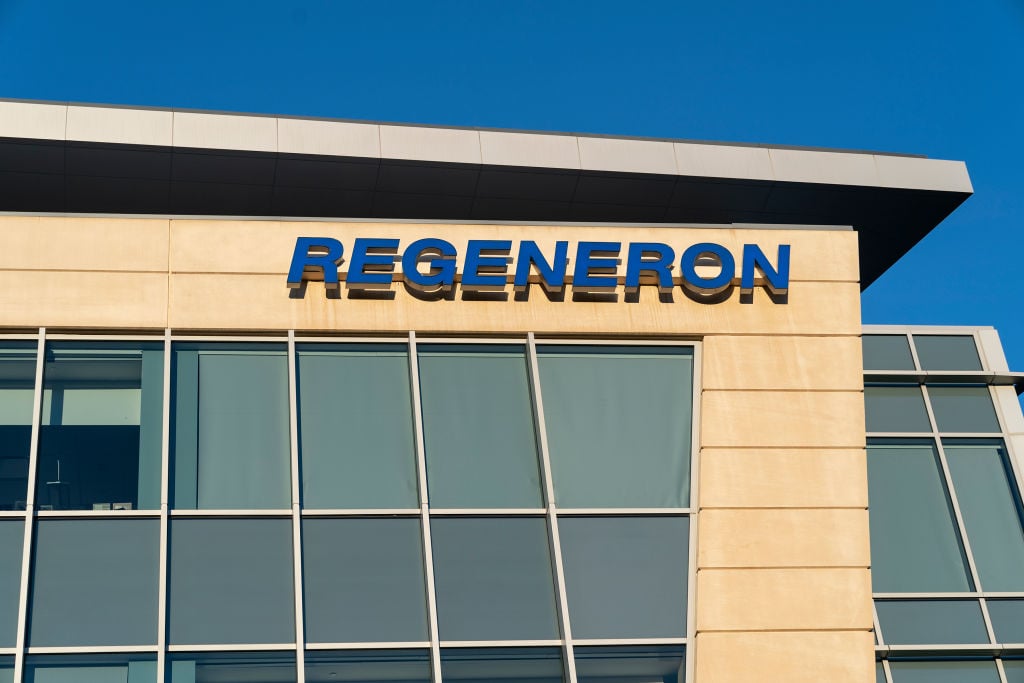Request Demo
Last update 08 May 2025
MUC16 x CD3
Last update 08 May 2025
Related
4
Drugs associated with MUC16 x CD3Target |
Mechanism CD3 stimulants [+1] |
Active Org. |
Originator Org. |
Active Indication |
Inactive Indication- |
Drug Highest PhasePhase 2 |
First Approval Ctry. / Loc.- |
First Approval Date20 Jan 1800 |
Target |
Mechanism CD3 stimulants [+1] |
Active Org. |
Originator Org. |
Active Indication |
Inactive Indication- |
Drug Highest PhasePhase 1/2 |
First Approval Ctry. / Loc.- |
First Approval Date20 Jan 1800 |
Target |
Mechanism CD3 modulators [+1] |
Active Org. |
Originator Org. |
Active Indication |
Inactive Indication- |
Drug Highest PhasePreclinical |
First Approval Ctry. / Loc.- |
First Approval Date20 Jan 1800 |
6
Clinical Trials associated with MUC16 x CD3NCT06787612
Multi-arm Phase 2 Study of Ubamatamab (REGN4018; MUC16×CD3 Bispecific Antibody) With or Without Additional Agents in Platinum-Resistant Ovarian Cancer
This study is researching an experimental drug called ubamatamab, also referred to as "study drug". The study is focused on patients who have advanced ovarian cancer.
The aim of the study is to see how safe, tolerable, and effective the study drug is on its own and in combination with other anti-cancer drugs (bevacizumab, cemiplimab, fianlimab and a standard chemotherapy drug, pegylated liposomal doxorubicin [PLD]), referred to as "combination drugs'.
The study is looking at several other research questions, including:
* What side effects may happen from taking the study drug and its experimental combinations
* How much study drug and fianlimab is in the blood at different times
* Whether the body makes antibodies against the study drug (which could make the drug less effective or could lead to side effects) and its combinations
The aim of the study is to see how safe, tolerable, and effective the study drug is on its own and in combination with other anti-cancer drugs (bevacizumab, cemiplimab, fianlimab and a standard chemotherapy drug, pegylated liposomal doxorubicin [PLD]), referred to as "combination drugs'.
The study is looking at several other research questions, including:
* What side effects may happen from taking the study drug and its experimental combinations
* How much study drug and fianlimab is in the blood at different times
* Whether the body makes antibodies against the study drug (which could make the drug less effective or could lead to side effects) and its combinations
Start Date01 May 2025 |
Sponsor / Collaborator |
100 Clinical Results associated with MUC16 x CD3
Login to view more data
100 Translational Medicine associated with MUC16 x CD3
Login to view more data
0 Patents (Medical) associated with MUC16 x CD3
Login to view more data
69
Literatures (Medical) associated with MUC16 x CD301 Apr 2025·The Journal of Pathology
Comprehensive characterization of micropapillary colorectal adenocarcinoma
Article
Author: Pohjanen, Vesa‐Matti ; Ahtiainen, Maarit ; Rautio, Tero ; Seppälä, Toni T ; Kastinen, Meeri ; Elomaa, Hanna ; Rintala, Jukka ; Tuomisto, Anne ; Pylkäs, Katri ; Mecklin, Jukka‐Pekka ; Mantere, Tuomo ; Saarnio, Juha ; Wirta, Erkki‐Ville ; Väyrynen, Sara A ; Helminen, Olli ; Böhm, Jan ; Sirkiä, Onni ; Karjalainen, Henna ; Äijälä, Ville K ; Mäkinen, Markus J ; Tapiainen, Vilja V ; Väyrynen, Juha P ; Sirniö, Päivi ; Pölönen, Petri ; Härkönen, Jouni ; Meriläinen, Sanna
01 Dec 2024·Alternative therapies in health and medicine
Clinical Efficacy of Sodium Cantharidate Vitamin B6 Combined with Concurrent Chemoradiotherapy in the Treatment of Local Advanced Cervical Cancer and its Influence on Tumor Markers.
Article
Author: Mu, Yanmin ; Lu, Dongfang ; Chen, Xiaolin ; Guo, Jing ; Zhang, Ling
19 Jul 2024·Alternative therapies in health and medicine
Impact of Shenmai Injection Combined with Chemotherapy on T-cell Subsets and Cytokine Profiles in Patients with Advanced Non-Small Cell Lung Cancer.
Article
Author: Cheng, Haiying ; Mo, Weiqiang ; Jiang, Jianping ; Jin, Xiaoyan ; Lian, Xue
7
News (Medical) associated with MUC16 x CD316 Oct 2023
Event-free survival of investigational use of Libtayo® (cemiplimab) in neoadjuvant cutaneous squamous cell carcinoma (CSCC) from Phase 2 trial to be featured in oral presentation
First data for the investigational combination of Libtayo and ubamatamab (MUC16xCD3) in recurrent ovarian cancer also to be presented
Additional presentations on outcomes of Libtayo-based therapy in advanced non-small cell lung cancer, including PD-L1 expression and histology specific subgroups
Regeneron Pharmaceuticals, Inc. (NASDAQ: REGN) today announced the latest clinical data in early- and late-stage cancers from its oncology pipeline will be presented at the European Society for Medical Oncology (ESMO) Congress 2023 from October 20 to 24 in Madrid, Spain. The presentations demonstrate the role of Libtayo® (cemiplimab) as both a monotherapy and a backbone of novel investigational combinations for various solid tumors.
“Our data presentations at ESMO underscore Regeneron’s ability to apply a deep understanding of cancer biology, genetics and the immune system to advance the development of meaningful combinations for cancer types that have high unmet need,” said Israel Lowy, Senior Vice President, Translational and Clinical Oncology at Regeneron. “Notably, we are presenting the first survival data for neoadjuvant Libtayo therapy in cutaneous squamous cell carcinoma and the first results for Libtayo in combination with ubamatamab, our investigational MUC16xCD3 bispecific antibody, in recurrent ovarian cancer. Beyond ESMO, we are excited by recent progress across our oncology portfolio, including FDA Fast Track Designation for fianlimab (LAG-3) plus Libtayo in melanoma. We look forward to sharing more with the global oncology community as we deliver on our promise to improve the lives of those impacted by cancer.”
Among Regeneron’s ESMO presentations is an oral highlighting one-year survival outcomes, including event-free survival, from a Phase 2 trial of Libtayo in neoadjuvant CSCC. The primary analysis was shared at last year’s ESMO meeting.
Regeneron will also debut Phase 1 dose-escalation results for its investigational combination of Libtayo and ubamatamab in patients with heavily pretreated recurrent ovarian cancer in a poster session. A Phase 2 expansion portion of the study is underway. Ubamatamab is a CD3-targeting bispecific designed to bridge MUC16 on cancer cells with CD3-expressing T cells to facilitate local T-cell activation.
Additional presentations at ESMO include subgroup analyses of Libtayo in advanced non-small cell lung cancer (NSCLC), focusing on such populations as squamous cell carcinoma and patients with varying levels of PD-L1 expression.
About Regeneron in Cancer
We aspire to turn revolutionary discoveries into medicines that can transform the lives of those impacted by cancer. Our team around the world is driven to solve the needs and challenges of those affected by one of the most serious diseases of our time.
Backed by our legacy of scientific innovation and a deep understanding of biology, genetics and the immune system, we’re pursuing potential therapies across more than 30 types of solid tumors and blood cancers. Our cancer strategy is powered by cutting-edge technologies and therapies that can be flexibly combined to investigate potentially transformative treatments for patients. Oncology assets in clinical development comprise nearly half of Regeneron’s pipeline, and include checkpoint inhibitors, bispecific antibodies and costimulatory bispecific antibodies. Our approved PD-1 inhibitor Libtayo serves as the backbone of many of our investigational combinations.
To complement our extensive in-house capabilities, we collaborate with patients, healthcare providers, governments, biopharma companies and each other to further our shared goals. Together, we are united in the mission to serve as a beacon of transformation in cancer care.
About Libtayo
Libtayo is a fully human monoclonal antibody targeting the immune checkpoint receptor PD-1 on T cells and was invented using Regeneron's proprietary VelocImmune® technology. By binding to PD-1, Libtayo has been shown to block cancer cells from using the PD-1 pathway to suppress T-cell activation. In the U.S. and other countries, Libtayo is indicated in certain patients with advanced basal cell carcinoma (BCC), advanced CSCC and advanced NSCLC, as well as in advanced cervical cancer in the European Union (EU), Canada and Brazil. As of July 1, 2022, Regeneron is responsible for the development and marketing of Libtayo globally. In the EU, Libtayo is currently marketed by Sanofi on Regeneron’s behalf over the course of a defined transition period.
In the U.S., the generic name for Libtayo in its approved indications is cemiplimab-rwlc, with rwlc as the suffix designated in accordance with Nonproprietary Naming of Biological Products Guidance for Industry issued by the U.S. Food and Drug Administration (FDA). Outside of the U.S., the generic name of Libtayo in its approved indications is cemiplimab.
The extensive clinical program for Libtayo is focused on difficult-to-treat cancers. Libtayo is currently being investigated in trials as a monotherapy, as well as in combination with either conventional or novel therapeutic approaches for other solid tumors and blood cancers. These potential uses are investigational, and their safety and efficacy have not been evaluated by any regulatory authority.
About Regeneron's VelocImmune Technology
Regeneron's VelocImmune technology utilizes a proprietary genetically engineered mouse platform endowed with a genetically humanized immune system to produce optimized fully human antibodies. When Regeneron's co-Founder, President and Chief Scientific Officer George D. Yancopoulos was a graduate student with his mentor Frederick W. Alt in 1985, they were the first to envision making such a genetically humanized mouse, and Regeneron has spent decades inventing and developing VelocImmune and related VelociSuite® technologies. Dr. Yancopoulos and his team have used VelocImmune technology to create a substantial proportion of all original, FDA-approved or authorized fully human monoclonal antibodies. This includes REGEN-COV® (casirivimab and imdevimab), Dupixent® (dupilumab), Libtayo®, Praluent® (alirocumab), Kevzara® (sarilumab), Evkeeza® (evinacumab-dgnb), Inmazeb® (atoltivimab, maftivimab and odesivimab-ebgn) and Veopoz™ (pozelimab-bbfg).
About Regeneron
Regeneron is a leading biotechnology company that invents, develops and commercializes life-transforming medicines for people with serious diseases. Founded and led for 35 years by physician-scientists, our unique ability to repeatedly and consistently translate science into medicine has led to numerous FDA-approved treatments and numerous product candidates in development, almost all of which were homegrown in our laboratories. Our medicines and pipeline are designed to help patients with eye diseases, allergic and inflammatory diseases, cancer, cardiovascular and metabolic diseases, hematologic conditions, infectious diseases and rare diseases.
Regeneron is accelerating and improving the traditional drug development process through our proprietary VelociSuite® technologies, such as VelocImmune®, which uses unique genetically humanized mice to produce optimized fully human antibodies and bispecific antibodies, and through ambitious research initiatives such as the Regeneron Genetics Center, which is conducting one of the largest genetics sequencing efforts in the world.
The content above comes from the network. if any infringement, please contact us to modify.

Phase 1Clinical ResultPhase 2Fast Track
03 Aug 2023
Regeneron's revised R&D road map includes the study of the bispecific as a monotherapy.
Regeneron is rethinking development of its prostate cancer bispecific after two patients died in a clinical trial. The deaths prompted the Big Biotech to stop enrolling patients to receive REGN5678 and a full dose of its checkpoint inhibitor, but a reshaped bispecific development program is continuing.
REGN5678 is designed to bind to CD28 on cytotoxic T-lymphocytes (CTLs) and PSMA on tumor cells. By binding to the costimulatory T-cell-specific surface glycoprotein and tumor-associated antigen, the drug candidate could activate CTLs and direct them to attack cancer cells. Regeneron identified the targeting of CD28 on previously activated T cells as a way to reduce toxicity compared to CD3 bispecifics.
The candidate, which may synergize with anti-PD-1/L1 checkpoint inhibitors, came through the release of preliminary phase 1/2 data unscathed. But safety concerns have since come to light and prompted a shift in the R&D strategy.
In its second-quarter results statement, Regeneron reported two immune-mediated deaths in a cohort of patients who received REGN5678 in combination with Libtayo, the company’s checkpoint inhibitor. The deaths drove Regeneron to stop enrolling patients to receive REGN5678 and a full dose of Libtayo.
Regeneron is sticking with the candidate, though. The revised R&D road map includes the study of the bispecific as a monotherapy and in combination with lower doses of Libtayo and other immunotherapy modalities. Regeneron’s other costimulatory bispecific development programs, which include candidates against EGFR, MUC16 and CD22, are unaffected and are still making their way through dose escalation.
Even so, the removal of the option to pair REGN5678 with a full dose of Libtayo is a blow. Regeneron took the bispecific into the clinic in the belief the combination may be able to overcome the resistance of metastatic castration-resistant prostate cancer to PD-1 inhibition. Overcoming resistance could bring the benefits of checkpoint inhibitors to prostate cancer, a setting in which the drugs have had little impact.
CD28 has a troubled history as a cancer target. The CD28 superagonist TGN1412 caused critical illnesses linked to cytokine storms in a phase 1 clinical trial in 2006. In recent years, companies including Johnson & Johnson and Sanofi have invested in candidates against the target, but fresh concerns emerged last year, when two deaths stopped trials of Alpine Immune Sciences’ conditional costimulator of CD28.

Phase 1Clinical ResultImmunotherapy
16 Jun 2023
NANJING, China, June 16, 2023 /PRNewswire/ -- Nanjing Leads Biolabs Co., Ltd. (hereinafter referred to as "Leads Biolabs" or "Company") today announces that
the phase I/II clinical trial application for LBL-033, an anti-MUC16/CD3 bispecific antibody, for the treatment of ovarian cancer and other malignant tumors, has been approved by the FDA (U.S. Food and Drug Administration). At present, no antibody product targeting MUC16 has been approved for marketing both inside and outside China.
The study is a multicenter, open-label, dose-escalation and expansion phase Ⅰ/Ⅱ clinical study. The phase Ⅰ part aims to evaluate the safety, tolerability, and pharmacokinetics of LBL-033 for the treatment of subjects with advanced malignancies, and to provide recommended doses for subsequent clinical studies. The primary objective of the Phase Ⅱ part is to evaluate the efficacy of LBL-033.
"I am pleased to see that the FDA has quickly approved the clinical trial application of LBL-033 in the United States, and I am grateful for the good suggestions given by the FDA during the IND review process. These have laid a good foundation for the rapid, high-quality and effective development of this new targeted immunotherapy." said
Dr. Charles Cai, Chief Medical Officer of Leads Biolabs, "
LBL-033 adopts a unique bispecific antibody molecule design to allow better drug aggregation in MUC16-overexpressing tumor cells and to reduce the non-specific activation of CD3, which may help improve efficacy and reduce side effects such as cytokine release syndrome. We look forward to the clinical evaluation of the safety and efficacy of this innovative drug in order to bring it to the general population of cancer patients as soon as possible."
About MUC16:
MUC16 (Mucin16, mucin 16) is a highly glycosylated type I transmembrane protein that is abundantly expressed in epithelial cells, providing a protective lubricating barrier against infection. However, MUC16 is abnormally highly expressed in a variety of malignant tumors, including ovarian epithelial cancer, fallopian tube cancer, primary peritoneal cancer, endometrial cancer, pancreatic cancer, non-small cell lung cancer and gastric cancer, and is involved in the regulation of immune escape, tumor cell proliferation and metastasis.
About ovarian cancer:
Ovarian cancer is the second most prevalent gynecologic malignancy in developed countries and the first of the three major gynecologic malignancies in terms of mortality, posing a serious threat to women's health. 314,000 new cases were diagnosed worldwide in 2020 and about 207,000 women died from the disease, with a rising trend year by year. Epithelial carcinoma is the most common type, accounting for about 80-90% of ovarian malignancies. Epithelial ovarian cancer frequently occurs in women aged 50-70 years. Currently, there is no effective and sufficiently accurate screening procedure to detect early-stage ovarian cancer. First-line platinum/paclitaxel-based chemotherapy is the standard of care for advanced ovarian cancer, with an efficiency rate of more than 80%. 5-year survival rate is 40-50%, and the survival rate for intermediate and advanced stages is approximately 30%. However, recurrence still occurs in 50-70% of patients. For patients with recurrent disease, treatment aims mainly to reduce symptoms and improve patients' quality of life. Therefore, there is a need to develop more effective treatment modalities to reduce the relapse rate and prolong the relapse-free interval.
About LBL-033:
As a T-cell engager, the bispecific antibody LBL-033 targeting MUC16-expressing tumor cells and CD3-expressing T cells, mediates cell-specific killing of MUC16-positive tumor cells by promoting the secretion of immune cytokines, and changes the tumor microenvironment in a direction favorable to tumor immunity, resulting in tumor cell death.
LBL-033 is an innovative biological product which has not been marketed both at home and abroad, and was granted IND approval for clinical trial by the NMPA (National Medical Products Administration) on February 16, 2023. On April 27, 2023, the first participant has been successfully dosed at Sun Yat-sen University Cancer Center.
LBL-033 is the first bispecific antibody targeting MUC16/CD3 that has been approved for clinical trial in China.
Nanjing Leads Biolabs Co., Ltd. is a clinical-stage R&D biotech company founded in Nanjing by a team of senior U.S.-educated antibody drug developers. Since 2014, Leads Biolabs has been dedicated to the research and development of novel antibody drugs with independent intellectual property rights for the treatment of oncology and other major diseases, mainly focused on the unmet pharmaceutical needs, especially the problems and challenges in tumor immunotherapy areas. Leads Biolabs already have a rich R&D pipeline with more than twenty novel tumor immunotherapy antibody projects based on monoclonal antibody and bispecific antibody development technology platform. Leads Biolabs will continue to expand its innovation to provide patients with safe, effective, accessible and affordable new drugs to meet the unmet pharmaceutical needs.
For more information, please visit:
SOURCE LEADS BIOLABS
ImmunotherapyIND
Analysis
Perform a panoramic analysis of this field.
login
or

AI Agents Built for Biopharma Breakthroughs
Accelerate discovery. Empower decisions. Transform outcomes.
Get started for free today!
Accelerate Strategic R&D decision making with Synapse, PatSnap’s AI-powered Connected Innovation Intelligence Platform Built for Life Sciences Professionals.
Start your data trial now!
Synapse data is also accessible to external entities via APIs or data packages. Empower better decisions with the latest in pharmaceutical intelligence.
Bio
Bio Sequences Search & Analysis
Sign up for free
Chemical
Chemical Structures Search & Analysis
Sign up for free


